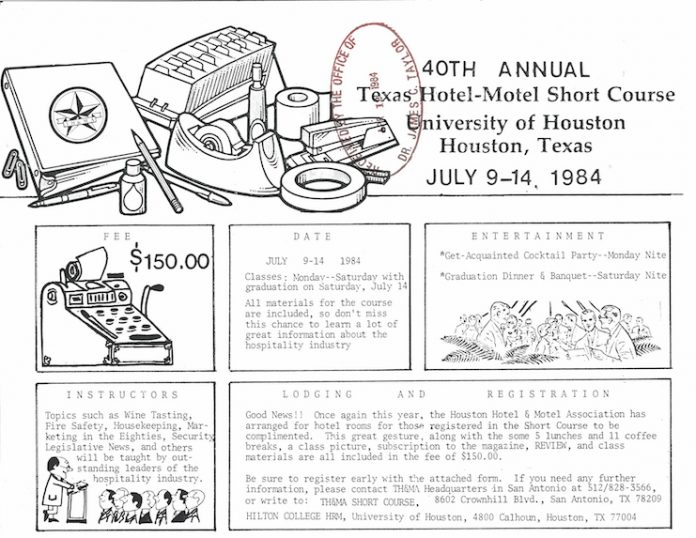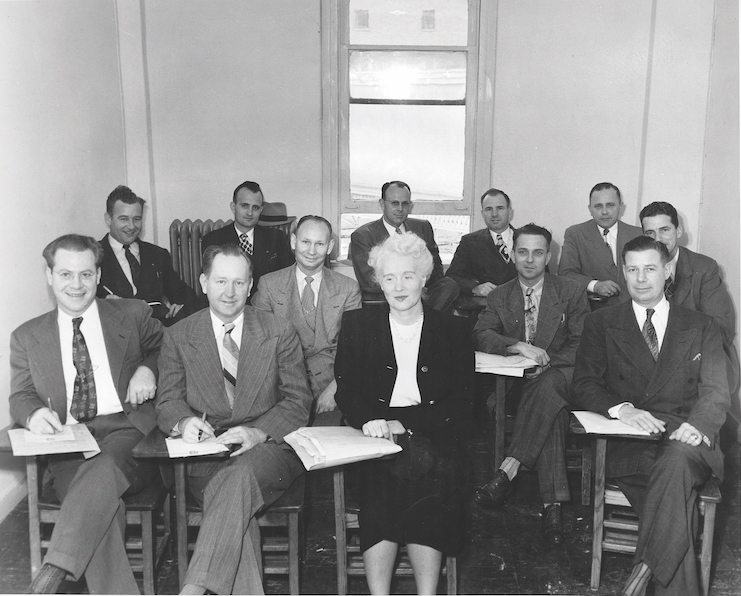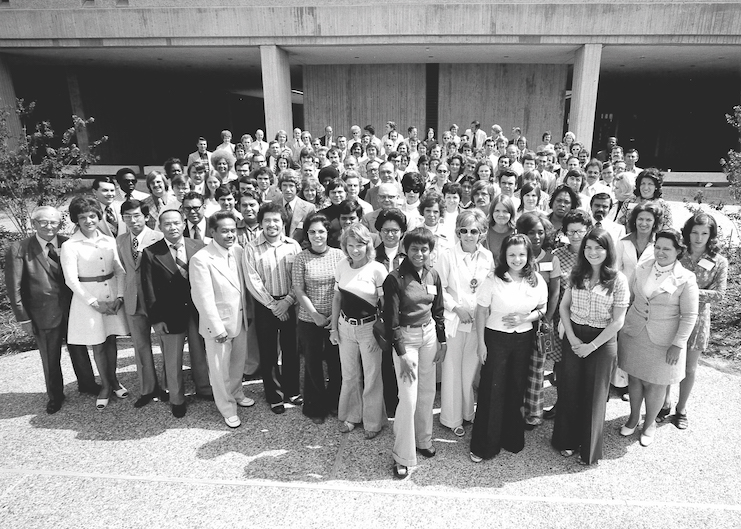
In the late 1930s, the need for qualified personnel to staff hotels was becoming critical. The number of degreed hospitality programs at the nation’s universities and colleges, however, were few. Compounding this issue was that most programs were located in the northeastern or upper midwestern United States. For hotels and individuals located in the South and West who desired lodging training, the cost of travel—let alone the cost of tuition, room, and board—was prohibitive.
After much discussion about how to solve this dearth of hotel educational opportunities, the Texas Hotel Association (THA) and the Texas Hotel Sales Managers Association came up with a novel idea: Create a kind of mini hotel school. So was born the “Short Course” hotel educational program. Duane Carlton of Dallas’ Adophus Hotel led the first Short Course program in June 1940 at the Adophus and Baker Hotels, in downtown Dallas. There were 125 people in attendance.
For hotels and individuals located in the South and West who desired lodging training, the cost of travel—let alone the cost of tuition, room, and board—was prohibitive.
The success of this training program was immediate, and another Short Course offering was set for the next year. This time, it was moved to the University of Texas in Austin and took place over the course of five days. The number of instructors was increased, with hotel personnel filling out a large part of the teaching staff, but classes were also taught by business and engineering professors from the University of Texas, and there were guest lecturers from Cornell and Chicago’s historic Palmer House Hilton.
The THA suspended the Short Course program after the United States entered World War II. It resumed operation in 1947, but moved then to the University of Houston, where it has remained.


James Taylor, who headed the Short Course at the University of Houston from 1947 into the 1980s, built it into a formidable educational tool. He updated the class offerings as technology changed and the early computer systems for lodging management came on line. He also broadened the dining curriculum as food tastes changed. International students began to attend the Short Course, further attesting to the success of the program. As the lodging industry grew with the development of chains, Taylor and THA worked with the brands to offer scholarships to attend the Short Course.
The success of the Short Course allowed Taylor to build on this educational platform to create a hotel school at the University of Houston. He eventually approached the Hilton family, longtime supporters of hotel education, to provide the initial and continuing support for what is now the Conrad N. Hilton College of Hotel & Restaurant Management of the University of Houston. A simple goal of preparing hotel employees led to a hugely successful educational program.











